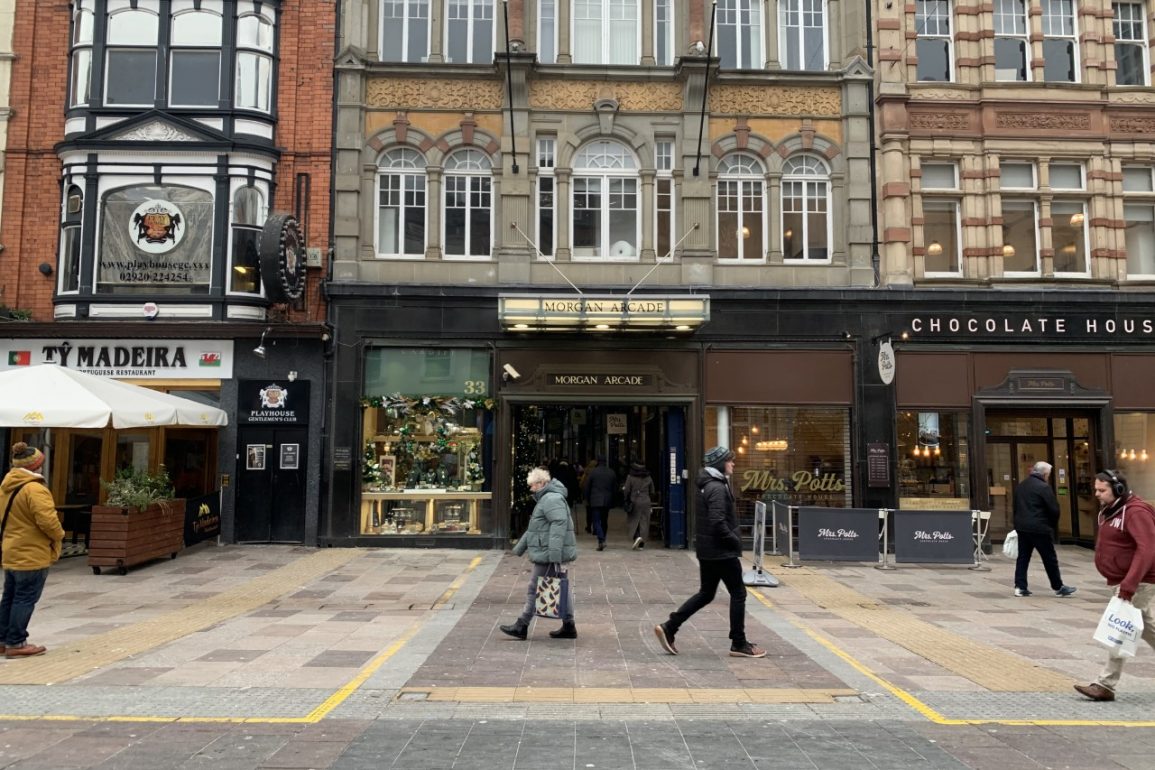How are traders in the city’s much-loved Morgan Arcade and Royal Arcade surviving the cost-of-living crisis?
THE CAPITAL city of Wales is often referred to as a ‘city of arcades’ due to its six iconic shopping arcades that populate its small yet bustling city centre.
For many , the arcades function as a route to other parts of the city, carrying them from one street to the next.
But there’s more to these arcades than just a quick shortcut.
In a modern retail economy dominated by faceless corporations, Cardiff’s arcades offer a glimpse into a rapidly disappearing past where personal connections were valued more than profit projections.
A rich history
The saying “if only these walls could talk” fits well with these historic grade II listed buildings, with every unit possessing the memoirs of not only their current inhabitants but also of those long since gone.
Each arcade has its own story.
The very first full-scale shopping arcade to be built in Cardiff was the Royal Arcade – the one with Wally’s delicatessen in the middle – in 1858, following the purchase of land by the Cardiff Arcade Company who would later build the Morgan Arcade, Wyndham Arcade, Castle Arcade, The High Street Arcade and the Duke Street Arcade.
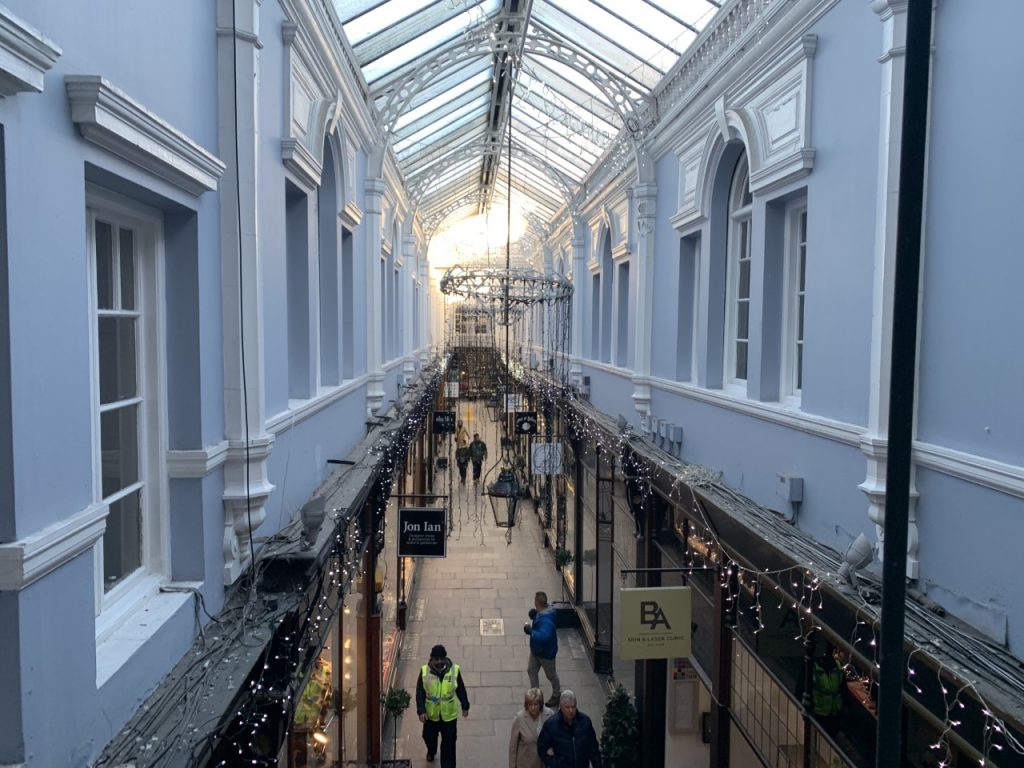
The Royal Arcade replaced the alleys of overcrowded slum houses which had previously occupied the plot of land during the mid-19th century.
The arcade was dubbed “the Royal Arcade of gentle lovers” in 1871 by residents frustrated by the building’s popularity as a meeting place for young people.
Nowadays you won’t find any rebellious Victorian teens loitering around the arcade, but instead a steady flow of shoppers squeezing through its narrow alley ways.
Whilst the vast majority of units have changed hands over the years, there are some shops which have been able to stand the test of time.
Protected by a dedicated team
Connected to the Royal arcade is the Morgan Arcade built in 1886, originally called the New Central Arcade, it was renamed the Morgan Arcade to mark the close connection between the arcades development and the nearby David Morgan’s department store.
It is here that you’ll find Spillers Record Store, which has proudly held the title of the world’s oldest record store since opening in 1894 (although it only moved to this arcade in 2010).
Both arcades fall under the remit of the Morgan Quarter and the watchful eye of Rory Fleming, the estate manager for both arcades.

“I’ve been in property management since 1994, predominately based in the north east of England, and when I saw the job being advertised 10 years ago, I saw the uniqueness of this place and decided to give it a go,” said Mr Fleming.
“Never one day or hour is the same, anything that comes through the door we have to deal with whether that’s security, cleaning, maintenance, and even things like pigeon control – it’s that varied.”
It’s clear to see that the importance of the arcades is not lost on someone like Mr Fleming, who has a passion for ensuring the building’s future.
“It’s seen two world wars and two pandemics and it’s still standing today.
“Despite the many changes to the city, the arcades have remained rooted and to me that shows their resilience.”
Thriving independent shops
According to Mr Fleming, around 80% of the stores within the arcades are independent businesses, owned by local people.
“The arcades are all about independent shops and that’s what we’re trying to maintain as best as we can.”
One of these many independent stores is the Queer Emporium, located next to the arcade’s entrance on St Mary Street.
The store, which opened in June 2021 to celebrate Pride month, has become an integral part of not only the arcade itself, but also to Cardiff’s LGBTQ+ community.
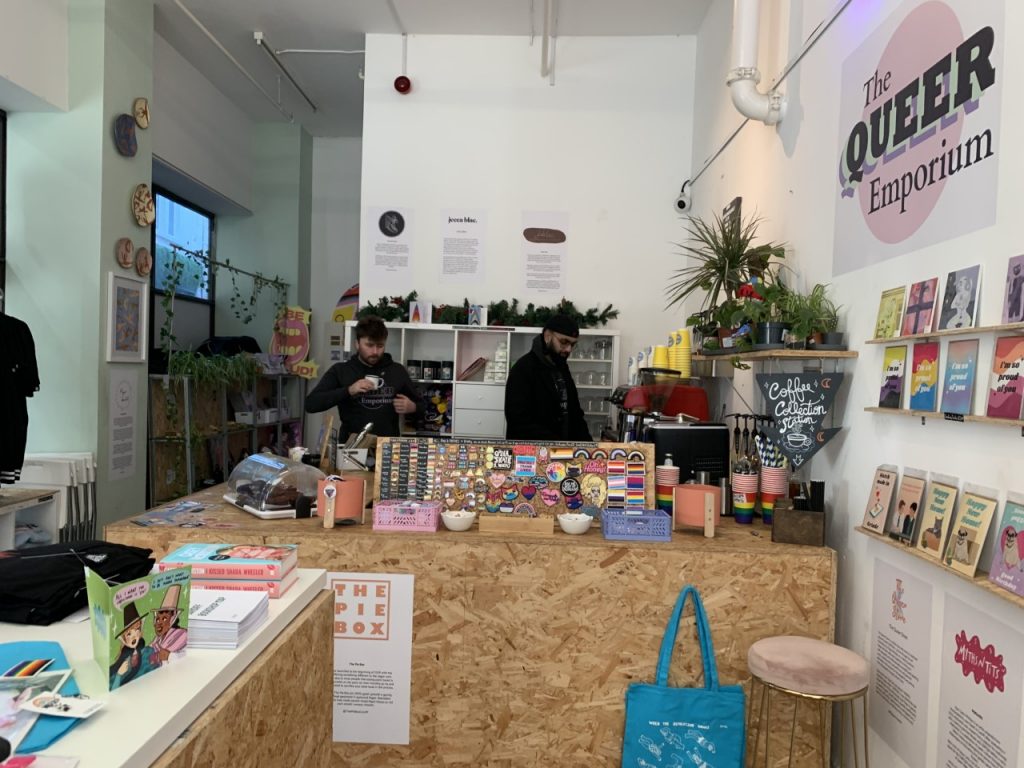
“We were only meant to open for four weeks,” said Yan White, director of the Queer Emporium.
“The idea is that for Pride month rather than buying a pair of rainbow trainers from some giant corporation you can actually buy something from a local business that makes a difference and you’re supporting the community.
“It was really popular and we’re still here now a year and a half later.”
The store, which Yan describes as a “Queer Debenhams,” is a not-for-profit that sells products on behalf of 20 local LGBTQ+ businesses.
The Emporium also acts as a safe space for those most vulnerable to the prejudices that still plague our society. And they’re supported in their endeavours by their neighbours within the arcade.
“We have an event called Transition which is a night where we platform trans and gender non-conforming people, we partnered with Keep The Faith Barbers and on those nights their team give out free gender-confirming haircuts,” said Yan.
“It’s amazing because we get people, especially trans women, coming in and asking for advice about their hair and how to grow it out and it creates that safe space.”
A sense of community
The idea of community is one common theme present in the otherwise diverse set of arcades that dot the city centre.
Ross Jones, owner of Jones Barbers which opened in Castle Arcade in 2015, recognises that.
He said: “A lot of us, myself included, have a core customer base who just use us not only for our services, but we become friends.
“We have good fun and we become a part of the city and that’s one of the good things of the arcade.”
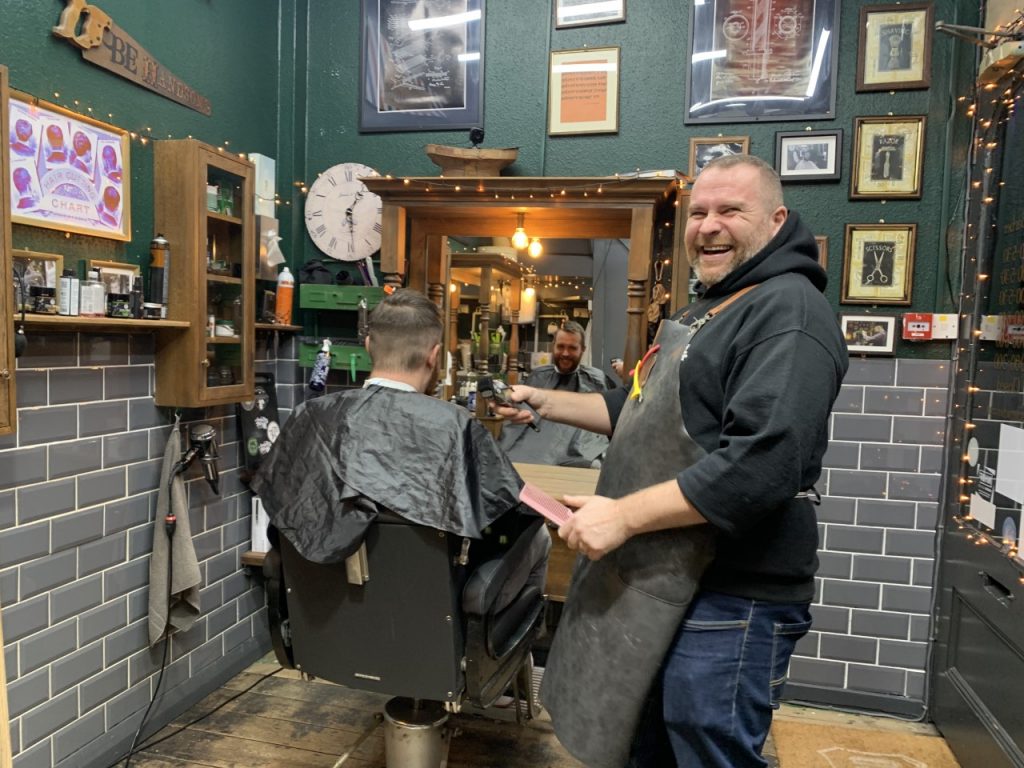
Walking through the arcades, you could be forgiven for thinking that their importance to the city lies in their early Edwardian designs and striking arched entrances.
However, despite the evident beauty, the arcades’ true worth to the city can be measured by the people who occupy it.
“I’m more concerned about the people than I am the building and I’ve always been like that,” said Mr Jones.
“The people in the arcades are worth more than the arcades itself, the buildings are beautiful but without the people in it currently it’s not worth anything.”
The cost-of-living crisis
The fallout from the Covid-19 pandemic and the current cost-of-living crisis has crippled the already challenged high street, and the arcades are no strangers to this economic threat.
“There are rising costs and it has a big impact on operational costs, but we’ve always tried to provide a service charge to the units that is right and can be affordable,” said Rory Fleming when asked about the current challenges facing the arcades.
“The problem is you’re talking about an historical building and these types of buildings typically need more maintenance put into them so things like that need to be balanced as well.”
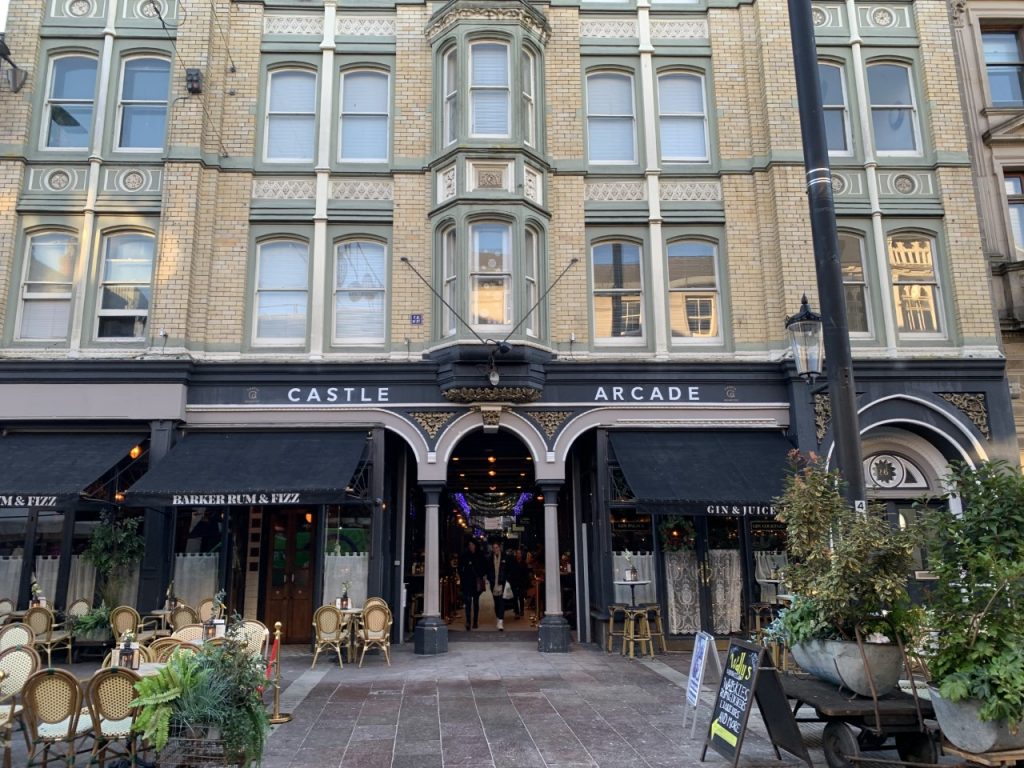
The impact of the crisis, which has caused a huge spike in bills and prices across the country, has also affected the various shops in the arcades which rely on a small but loyal customer base.
“A lot of our customers are on low income or don’t have a huge amount of disposable cash and when you get something like your energy bills doubling that really affects someone who already only has a small amount to spend,” said Yan White.
“That’s affecting us and we’re expecting it to affect us more but we’re pretty good at being creative and diversifying income streams to generate more money.”
That sense of optimism in the face of such a potentially devastating storm is shared among many other shop owners whose resilience has so often been their strength.
“I’d like to say that we’re going to see a resurgence in independent businesses, if you just walk through this arcade now, you’ll see more pop-up shops,” said Mr Jones.
“You know we’re there and we don’t intend to go anywhere.”

